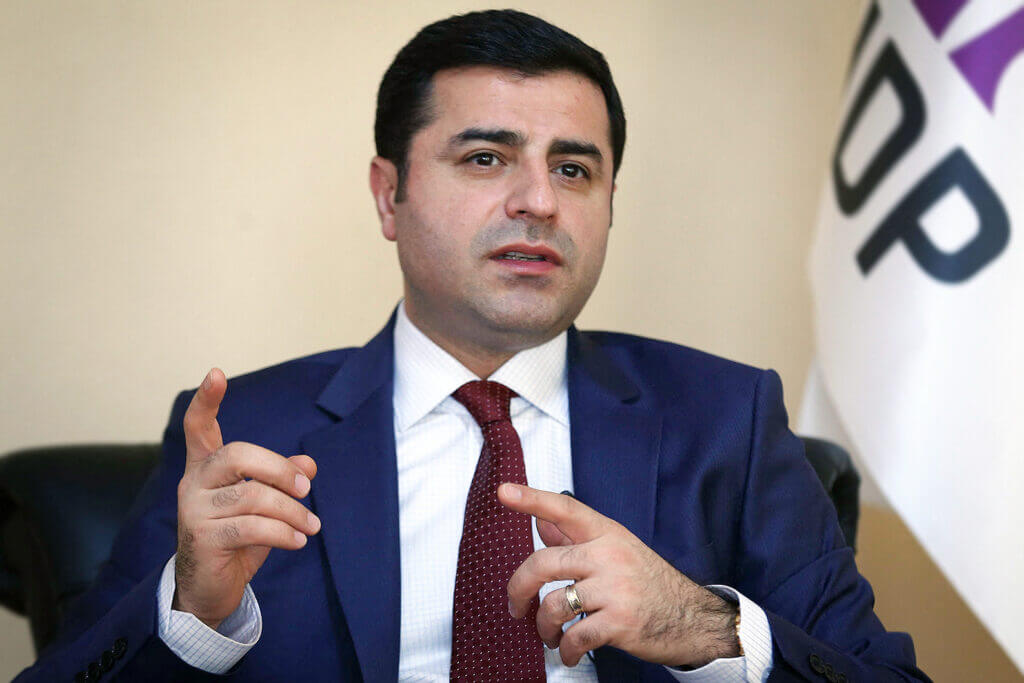Jailed Kurdish leader Selahattin Demirtaş has called on President Recep Tayyip Erdoğan and nationalist party leaders to discuss on live television “democratic autonomy” for the Kurdish minority in Turkey, Voice of America (VOA) Turkish edition reported on Monday.
Demirtaş, a two-time presidential candidate and former co-chair of the pro-Kurdish Peoples’ Democratic Party (HDP), has been imprisoned since 2016.
The Kurdish leader’s call came during his defense at the last hearing of the Kobani trial, which has led to the imprisonment of dozens of Kurdish politicians for allegedly instigating a series of protests in the predominantly Kurdish southeastern provinces in 2014 in reaction to clashes between Syrian Kurds and the Islamic State in Iraq and the Levant (ISIL).
The deadly 2014 protests erupted as ISIL militants laid siege to the predominantly Kurdish Syrian town of Kobanê. Thirty-seven people died in demonstrations against the Turkish army’s inaction in the face of the ISIL offensive.
Demirtaş made his call to Erdoğan, in addition to Devlet Bahçeli, leader of Turkey’s far-right Nationalist Movement Party (MHP) and an ally of the president; nationalist opposition İYİ (Good) Party chair Meral Akşener; Ümit Özdağ, leader of the far-right and anti-refugee Victory Party (ZP); and other nationalist party leaders.
“Let the conditions be equal. Let us defend our ideas and let them say what they want. I bet that at the end of the TV program they’ll understand very well what democratic autonomy is,” Demirtaş said.
The Kurdish leader also provided seven suggestions to solve the Kurdish issue, a term prevalent in Turkey’s public discourse that refers to the demand for equal rights by the country’s Kurdish population and their struggle for recognition.
Among the suggestions were ensuring the cessation of armed conflict through negotiations with relevant interlocutors; removing all legal and administrative barriers before democratic politics; recognizing Kurds as a people with their native language, history and culture; and dropping criminal cases arising from the consequences of the Kurdish issue.
Kurds make up around 20 percent of Turkey’s population. The group has faced a long history of discrimination and violence in the country. They are often pressured not to speak their native language. Authorities frequently claim that people speaking in Kurdish are actually chanting slogans in support of the outlawed Kurdistan Workers’ Party (PKK), which has been leading an armed insurgency against Turkey’s security forces since 1984 in a campaign that has claimed the lives of some 40,000 people. The so-called Kurdish issue is entrenched in Turkey and is characterized by never-ending clashes between the PKK and Turkish security forces.
Erdoğan’s ruling Justice and Development Party (AKP) launched talks with the outlawed PKK leadership in 2012 in a bid to resolve the Kurdish issue, but the talks collapsed in 2015 after which the government allied with the MHP and adopted a nationalist discourse, which further disenchanted Kurds.



